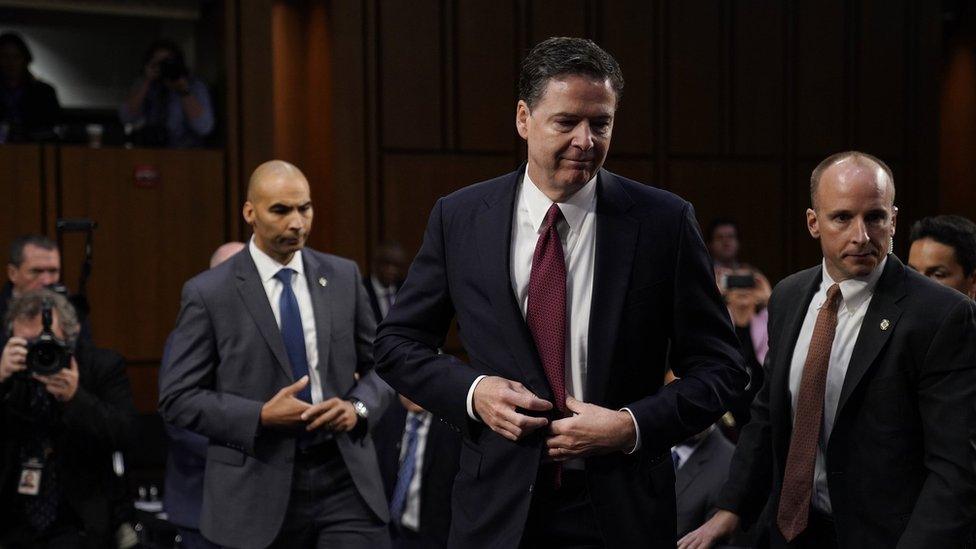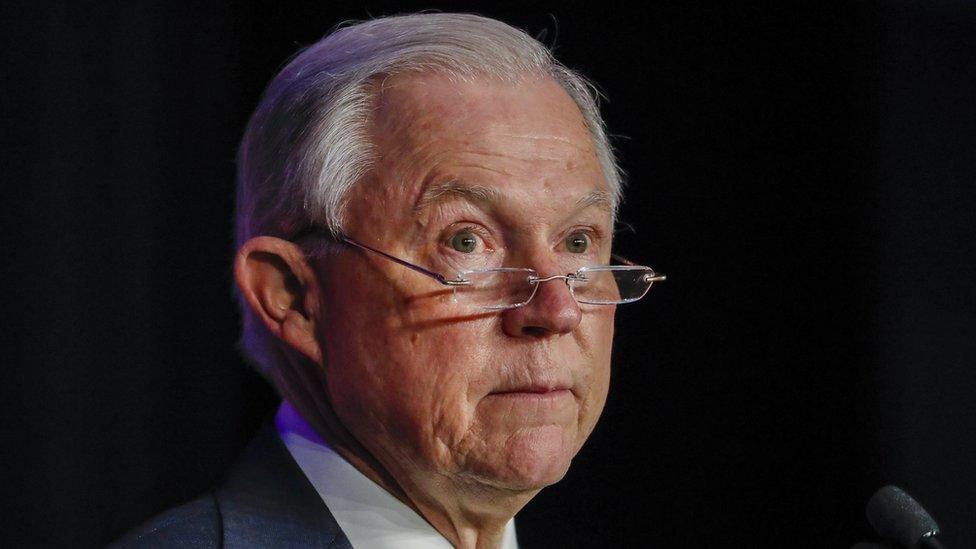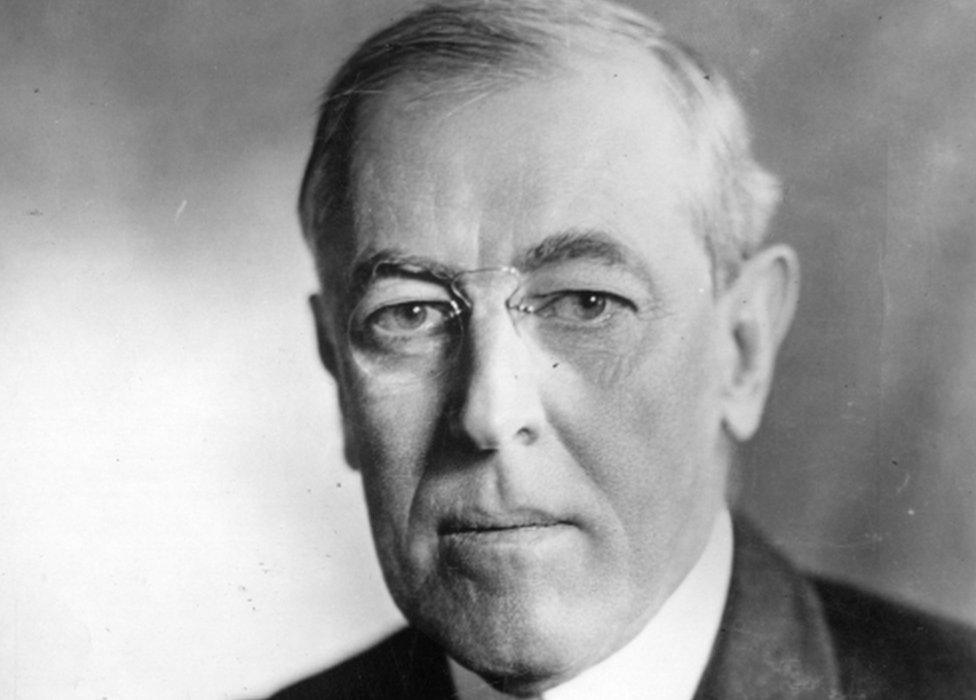Trump-Comey row: What questions remain after testimony?
- Published

Senators may get more of their questions answered at a closed session of the hearing
Former FBI director James Comey's evidence to the Senate Intelligence Committee has been keenly awaited by the US public.
Mr Comey, who was sacked by Donald Trump on 9 May, gave some clues to the inner workings of the Trump administration and its relationship with the intelligence services.
But despite the forensic examination of the witness by senators some questions remain unanswered, whether because they involve classified information or because, well, the answers just aren't there yet.
Here are a few of them:
What are the facts Comey was unable to disclose about Attorney General Jeff Sessions?
The former FBI director said there were a "variety of reasons" why Mr Sessions' involvement in the investigation of Russia's alleged interference in the 2016 election campaign would be problematic.
However, he said he was unable to speak about them in an open session of the hearing.

Mr Sessions recused himself from the Russia investigation
Mr Sessions recused himself from the investigation in March after revelations that he had had conversations with Russian Ambassador Sergei Kislyak during the election campaign.
He had failed to reveal these conversations at his confirmation hearings.
Are there tapes of Mr Comey's conversations with Mr Trump?
Three days after Mr Comey was fired, the president tweeted that the former FBI director should hope there were no tapes of their conversations.
Mr Comey has since expressed the hope that there are tapes and at the hearing he urged the president to release all their conversations if tapes exist. "I'm good with it," he said.
But while Mr Comey has himself kept detailed memos of his conversations, there is no actual evidence that tapes exist.
Why were senior officials asked to leave the Oval Office during their 14 February meeting?
Mr Comey testified that President Trump asked Attorney General Sessions, aide Jared Kushner and senior intelligence officials to leave the room during a meeting on counter-intelligence on 14 February.
Mr Trump then mentioned Mike Flynn, whom he had recently sacked as national security adviser.
Near the end of the conversation, Mr Trump said: "He is a good guy, I hope you can let this go."
In his testimony, Mr Comey did not explain why Mr Trump wanted to speak to him alone, and Mr Trump has as yet shed no light on the matter.
Will Mr Trump testify?
The committee's Republican chairman hinted that Mr Trump might be called to give evidence at some stage.
"The American people need to hear your side of the story, just as they need to hear the president's description of events," Richard Burr told Mr Comey.
To date, only one sitting US president has ever testified before a Senate committee.

Woodrow Wilson is the only sitting US president to give evidence to a Senate committee
In August 1919, Woodrow Wilson gave testimony before the Foreign Relations Committee on the Treaty of Versailles with Germany after World War One and the establishment of the League of Nations.
The Senate twice rejected the treaty and the US never joined the League of Nations.
However, President George Washington testified on Indian treaties before the whole Senate in 1789, and Theodore Roosevelt, Harry Truman and Gerald Ford gave evidence to Senate committees after they had left office.
Is Mr Trump under investigation or not?
Mr Comey said in his statement released on Wednesday that he had assured Mr Trump on three occasions that he was not personally under investigation, confirming Mr Trump's own accounts.
Explaining why he hadn't gone public with this information at the time, he said that if anything changed and an investigation into the president was started, he would have felt obliged to go public with that as well.
Trump lawyer Marc Kasowitz said that the president felt "totally vindicated" by Mr Comey's account.
But since Mr Comey is no longer in charge of the FBI, and the investigation has now been passed to Special Counsel Robert Mueller, it is possible that Mr Trump is now being investigated after all.